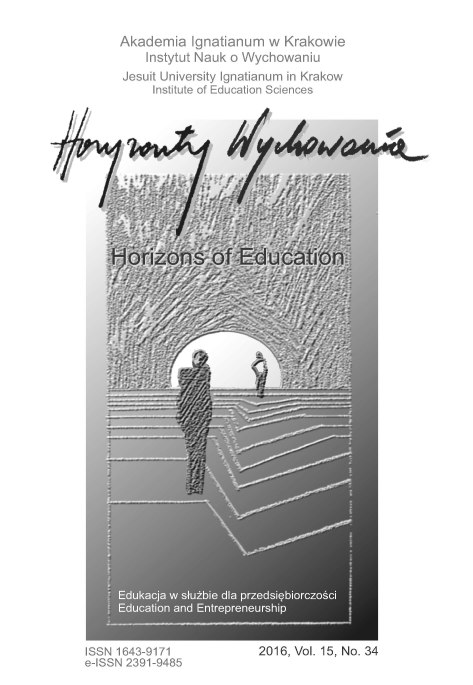Prawne aspekty wsparcia działalności innowacyjnej pracowników naukowych
Legal aspects of the support for innovative activities of scientists and researchers
Author(s): Magdalena KrawczykSubject(s): Business Economy / Management, Adult Education, Higher Education , Educational Psychology, Methodology and research technology, Applied Sociology, Management and complex organizations, Law on Economics, Sociology of Education
Published by: Uniwersytet Ignatianum w Krakowie
Keywords: entrepreneurial education; technology transfer; innovation; entrepreneurship education;
Summary/Abstract: Research objective: The aim of the article is to identify the attitudes that effectively provide legal support for researchers who are engaged in innovative projects aimed at economic growth and who cooperate with entrepreneurs. The research problem and methods: The problem analyzed in the article is the discrepancy in the interpretation of the basic terms from the field of research and development and the threats to researchers’ intellectual property rights connected with it. By presenting an overview of subject literature, the author analyses the legal aspects of the cooperation between business and science. The process of argumentation: The article presents tools which can be used to protect intellectual property rights in such a way that economic success of universities and entrepreneurs is guaranteed without violating the rights of scientists directly involved in a particular study. Attention is drawn to common practices in which human capital must give way to business and marketing. The article indicates the key role of universities as owners of intellectual property rights – a party to agreements of the transfer of innovation and a representative of the rights of scientists. Research results: This article draws attention to the significance of the implementation of the results of scientific research. Due to differences in the interpretation of the term ‘technology transfer’, the author postulates replacing it with the term ‘innovation transfer’. Conclusions, innovations and recommendations: An increasing number of commercialized results of studies conducted by universities has become an important determinant of competitiveness of universities. Skillful management of the intellectual property rights registered for universities, which helps to effectively transfer innovation, seems particularly important.
Journal: Horyzonty Wychowania
- Issue Year: 15/2016
- Issue No: 34
- Page Range: 297-307
- Page Count: 11
- Language: Polish

